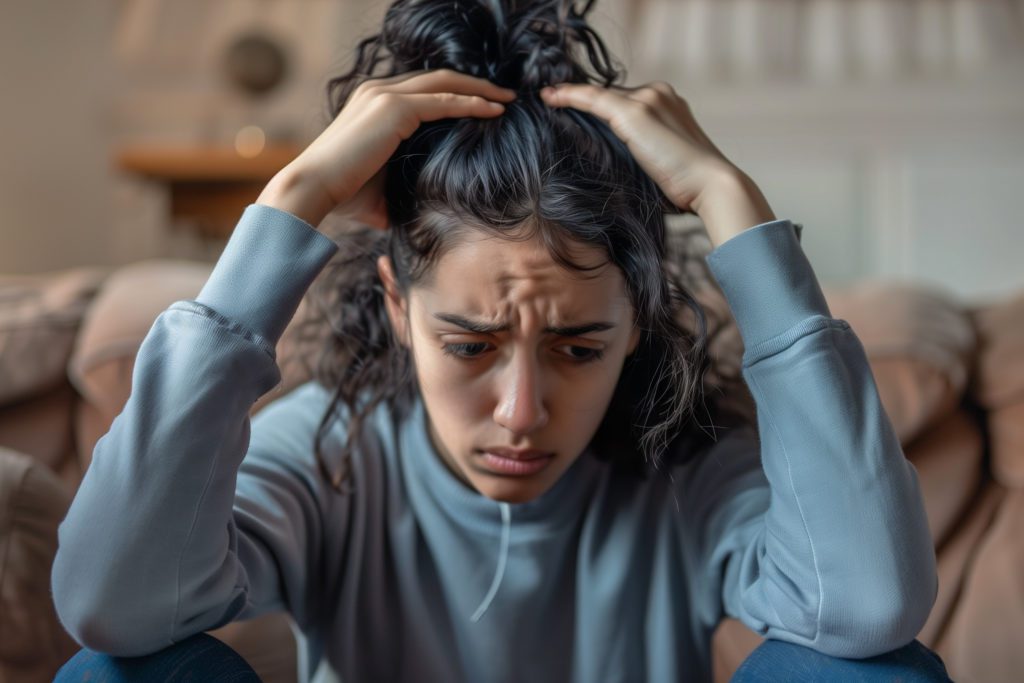
ASMR and Insomnia: Can It Help You Sleep Better?
Millions of people struggle with insomnia. Recent studies on ASMR and insomnia suggest this phenomenon may be what you need to get a good night's sleep.

Over the last few years, ASMR content has become extremely popular. Search online, and you'll see millions of ASMR videos featuring creators delivering a wide variety of content intended to soothe and relax. Although these videos are on every social media platform, many are still unsure about what ASMR is and how it works. By learning more about this unique phenomenon, you may consider using these videos to your advantage, whether to relax or fall asleep.
What Is ASMR?
ASMR stands for "autonomous sensory meridian response." It describes the physical sensations some people experience from certain types of stimuli. These stimuli can include specific sounds, visuals or contact with another person (whether online or in reality). Some examples are sounds of brushing, tapping or crinkling noises. Visual triggers may include watching someone draw, paint or complete another soothing task.
Those who respond physically and emotionally to ASMR say it feels like a tingling that starts at the top of the head and moves down the neck. Some describe it as a "brain massage" extending down the spine and through their arms and feet. Another typical response to ASMR stimuli is goosebumps.
A 2018 study found people who respond to ASMR experience significant activation in parts of the brain associated with reward and emotional arousal. Additional research shows that most people watching ASMR content feel comforted, sleepy and relaxed.
However, not everyone enjoys ASMR. Some respond negatively, and the same sounds that are relaxing for some cause extreme aversion for others. While there is no rhyme or reason as to who may or may not like it, those who do may benefit physically and emotionally.
The Benefits of ASMR
Those who experience tingles and shivers report immediate feelings of pleasure during ASMR exposure. While research is new, it's becoming more evident this type of stimuli may have several health-related benefits:
- Improve mood - Most people report feeling better immediately after and while listening to ASMR.
- Deeper sleep - The positive feelings associated with ASMR may help release neurohormones and endorphins from the brain, improving your sleep quality.
- Better concentration - ASMR can help some people achieve a "flow state," which allows for complete concentration on a task.
- Pain relief - ASMR might provide some relief and relaxation for those with chronic pain conditions.
Additionally, people who enjoy ASMR report lower blood pressure, less anxiety and fewer headaches. However, more research is necessary to back up these claims.
ASMR and Insomnia: Can It Help?
Insomnia is a sleep disorder experienced by up to 50% of the population at any given time. Many treatments exist for insomnia, including cognitive behavioral therapy, lifestyle changes and prescription medications. However, not everyone can afford these interventions, and medications often come with considerable side effects.
The brain plays a vital role during sleep. While asleep, the thalamus remains active, sending sound and image signals as you experience REM (rapid eye movement). This stage is associated with dreams. However, it is inactive during other sleep stages. ASMR may also activate the thalamus, enhancing your overall sleep quality.
In addition, ASMR can trigger the medial prefrontal cortex, which releases oxytocin. Oxytocin promotes feelings of sleepiness and calmness, helping you drift off more quickly. In addition, ASMR can lull you into a trance-like meditative state, which is beneficial for those who have difficulty forgetting about the day's stress in the evening.
While research into this field is ongoing, recent studies show ASMR could help treat insomnia. The results of a 2022 study indicate ASMR videos can potentially improve mood with possible implications for alleviating symptoms of insomnia and depression. Additionally, a new 2023 study concluded that ASMR may have considerable potential for those looking for a cost-effective way to improve their mental health and enhance sleep, with one participant comparing ASMR stimuli to "a sleeping pill."
However, ASMR may have a downside, especially if you use it every night. A 2018 study on ASMR and physiological response found some users eventually experience "ASMR immunity." In other words, they become so accustomed to the triggering stimuli they ultimately stop experiencing the calming effects and tingling sensations. However, more research is necessary to determine if most people will experience immunity from overexposure. This finding may be important for those who begin to rely on ASMR material to fall asleep every night.
While researchers need to gather more data regarding ASMR and insomnia, there are reasons to believe it could be an effective treatment for some. Because ASMR is soothing for many, this deep relaxation may help those struggling with insomnia, lulling them into a good night's sleep.
How To Use ASMR for Insomnia
If you're curious about ASMR and insomnia and whether it can help you, there are several ways to include it in your sleep routine.
- Clear your mind before bed - ASMR works best if you're not overly stressed. Try to set aside time before bed to write in a journal to help you wind down before listening to ASMR.
- Identify your triggers - Experiment with different sounds and videos to help you determine which ones work best to help you relax.
- Invest in good headphones - Earbuds or headphones can significantly enhance the quality of your ASMR experience. In-ear headphones are preferred since they help you experience the stimuli as closely as possible.
- Consider blue light-blocking glasses - Devices like computer screens and phones emit blue light, disrupting sleep quality. If you prefer an audio-visual ASMR experience, consider using blue light-blocking glasses.
If you're wondering whether you can benefit from ASMR, give it a try. You may feel those tingling sensations and find soothing relief, or you may not. Everyone's experience is unique, and more research is necessary to determine whether there are actual clinical applications for this type of content.
FAQ
Are there risks of becoming dependent on ASMR to fall asleep?
It’s possible to develop a reliance on ASMR as part of your sleep routine, but it’s generally harmless if balanced with other healthy sleep habits.
How does ASMR compare to other relaxation techniques for sleep?
ASMR differs from other methods like meditation, deep breathing, or progressive muscle relaxation by using sensory stimuli to elicit a calming response. While some may find ASMR more effective, others might prefer these traditional techniques, depending on their needs.
Is there an optimal duration for listening to ASMR before sleep?
While there’s no set duration, many find 20–40 minutes of ASMR sufficient for relaxation. Longer sessions might help if paired with a calming bedtime routine.
What are the best types of ASMR for light sleepers?
Light sleepers may benefit from gentle, repetitive ASMR sounds, such as soft rain, ocean waves, or whispering, which are less likely to disrupt sleep.
Can ASMR help with middle-of-the-night awakenings?
Listening to ASMR during night-time awakenings may help calm the mind and body, making it easier to fall back asleep.

Written by
Emily Mendez
Emily Mendez is a former therapist and mental health author. She is one of the leading voices in mental health. Emily's writing has appeared in eCounseling, SonderMind, and more. Emily is frequently interviewed by Healthline, Fatherly, INSIDER, Family Circle, and other national media for her advice and expert opinion on the latest mental health topics.
Download Pillow
Get help
Press & News
Legal
Connect
X (Twitter)
Company
Copyright © Neybox Digital Ltd.



